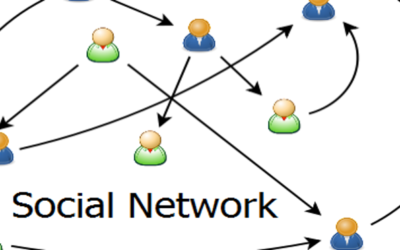 Scientific research is showing us again and again that lifestyle changes can make a difference in brain health. Lifestyle changes can slow cognitive decline among older healthy individuals.
Scientific research is showing us again and again that lifestyle changes can make a difference in brain health. Lifestyle changes can slow cognitive decline among older healthy individuals.
The first randomized, controlled trial of its kind, the FINGER study led by Professor Mila Kivipelto of the Karolinska Institute in Stockholm, Sweden, demonstrated that lifestyle interventions can reduce risk.
What Should I Focus On?
Individuals improve their cognitive performance when they focus on physical activity, mental activity and nutrition. In the Finger Study, the focus was on physical activity, brain training and nutrition as well as management of blood pressure and weight. Lifestyle changes in these areas improved cognitive performance by 25%.
Physical Activity
Physical activity has a positive effect on the brain’s hippocampus. The brain’s hippocampus is vital to learning. It takes in new information and will transition that information to a specific area of your brain. This is not a random process, but is a sophisticated process. For example, if the information is visual, the hippocampus will help store the information permanently in the visual cortex of the brain.
The hippocampus also has the ability to generate new brain cell development. That ability to generate new brain cells seems to be linked to aerobic exercise.
So get out those sneakers and get moving!
Cognitive Training
There has been a fair amount of controversy about whether or not brain training helps your brain. Some individuals love their computer brain training games and exercises. Other people just do not enjoy sitting down at a computer to play games. The evidence suggests that individuals improve speed of processing through brain training. It is less clear whether the brain training has an impact on other areas of the brain.
But cognitive training does not have to be limited to computer brain training games and exercises. The brain benefits from any novel and complex activity that challenges your mental abilities. The key is to get a variety of exercises and activities that engage and add enjoyment to life. The research on cognitive stimulation therapy has shown that mentally challenging activities have a positive effect on cognitive abilities.
Fit Minds Daily Puzzle
Exercise Your Brain for Three Minutes Everyday
Nutrition
Nutrition is an important aspect of brain health. There are many factors which impact your nutritional needs. But it is clear that good nutrition is important for brain health.
Researchers are identifying ‘brain essential nutrients’ that positively impact the brain. Mental health researchers are finding more and more evidence that what we eat impacts our mental health. Spending time developing a good nutritional plan is worthwhile. .
A Plan to Implement Lifestyle Changes
The New Year is always a great time to think about making changes. Listed below are some ideas for you to consider in each of these three areas.
Physical Activity
- Strength Training – Add strength training to your exercise routine. Aim for two to three times per week. Give your muscles 48 hours to recover.
- Aerobic Exercise – Do 60 minutes of aerobic exercise four or five times per week. Choose a type of aerobic exercise that you enjoy.
Nutrition
- Food – Eat well, paying attention to getting good fats, sufficient protein and the nutrients that your brain needs. [See our Blog Post on Brain Health Nutrients]
- Water – Pay attention to your hydration – drink plenty of water. [See our Blog Post: Water, Water, Water]
Cognitive Training
- Novel -use a range of activities – puzzles, problem-solving, time tests, learning a new skill
- Complex – engage in mentally challenging activities (3-5 times a week)
Dementia has multiple risk factors and therefore any approach has to be multifaceted. The lead physician of the FINGER study concluded that activities that combine social, cognitive and physical factors are the ideal.
But most importantly enjoy life! Sustained enjoyment of life is shown to increase life spans. At this time of year, give some thought to your social networks and focus on strengthening them. Life is good when we are happy and thriving.




0 Comments